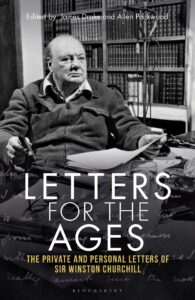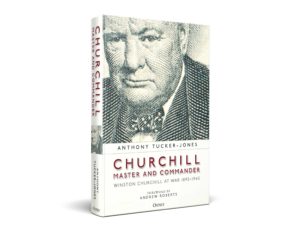Finest Hour 161
Books, Arts & Curiosities – Churchill and Empire: Portrait of an Imperialist

Winston Churchill, Parliament Square, London © Sue Lowry & Magellan PR
February 27, 2015
Finest Hour 161, Winter 2013-14
Page 51
Churchill and Empire: Portrait of an Imperialist, by Lawrence James. Weidenfeld & Nicolson, 464 pp., £25, available from Amazon UK.
The British people, generally speaking, were fighting in defence of their own country. Their aim was to beat the Nazis and return to a quiet life. For Churchill himself the aim was larger and more elevated: the preservation of Britain’s empire and the Great Power status it conferred. He was, and always had been, a passionate imperialist, a rich biographical theme explored by Lawrence James.
So much has been written about every phase and episode of Churchill’s life that James has to travel many a well-trodden path. Fortunately he writes extremely well and refreshes a multitude of familiar topics with narrative skill. The clarity, pace and punch of his prose carry the reader along. On the debit side it has to be said that, although he has done plenty of homework, he could have done more. It is puzzling that he seems to have made no use of the Churchill Papers. Nor is he always accurate on matters of detail. Churchill, he claims, denounced the Hoare–Laval Pact of December 1935. Up to a point, Lord Copper!* When the crisis arose he was on holiday in Majorca, and there he stayed, absenting himself from the parliamentary debate and issuing no statement for or against the Pact.
Also misleading is James’s account of the War Cabinet discussions at the time of Dunkirk over the possibility of a compromise peace with Hitler. It was Churchill, not Chamberlain, who said, “If we could get out of this jam by giving up Malta and Gibraltar and some African colonies, I would jump at it.” He did not mean it of course.
James’s theme, however, gives him a large canvas to work on, and he is at his best attacking it with bold strokes and a broad brush. In the never-ending debate between readers of The Guardian and readers of the Daily Telegraph over the merits of the British Empire, James is firmly in the Telegraph camp. Nevertheless he is more critical of Churchill than might be imagined. While praising the conciliatory liberal imperialism of WSC’s youth, he shows how the rise of nationalist movements within the Empire posed a challenge to which he responded with brutal and reactionary policies and (in private) bitter racial abuse. Churchill’s other great mistake, in James’s view, was to succumb to the illusion that he could persuade the American political elite to sustain and protect an empire they were determined to liquidate. The outcome was the Anglo-American “special relationship,” a feeble substitute for the global status the British Empire had conferred in the past.
But James overdoes the centrality of empire to Churchill’s world-view. However deep his attachment to it, the maintenance of a balance of power in Europe was always his chief priority. Whenever the European in Churchill came into conflict with the imperialist, it was the European who prevailed.
*Lord Copper is the press lord in Evelyn Waugh’s novel Scoop. His foreign editor dares not contradict him, so when Lord Copper makes some statement he completely disagrees with he replies: “Up to a point, Lord Copper.”
Subscribe
WANT MORE?
Get the Churchill Bulletin delivered to your inbox once a month.






